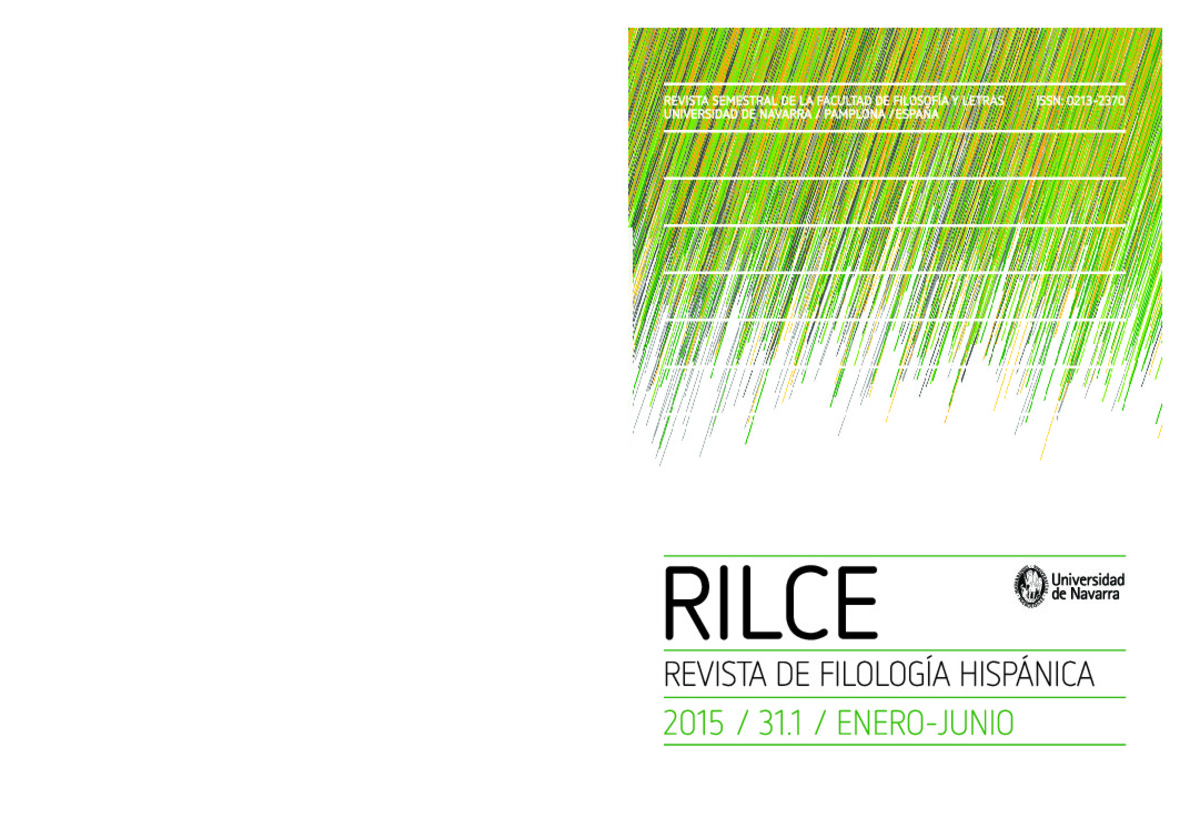Full metadata record
| DC Field | Value | Language |
|---|---|---|
| dc.creator | Carrasco-González, J.M. (Juan M.) | - |
| dc.date.accessioned | 2015-09-24T08:14:02Z | - |
| dc.date.available | 2015-09-24T08:14:02Z | - |
| dc.date.issued | 2015 | - |
| dc.identifier.citation | Carrasco-González, Juan M. (2015). ""Influencia del español en la prosa barroca portuguesa: los tiempos compuestos"", Rilce, vol. 31, n.1, pp. 79-96. | es_ES |
| dc.identifier.issn | 0213-2370 | - |
| dc.identifier.uri | https://hdl.handle.net/10171/39089 | - |
| dc.description.abstract | La presencia de la lengua española en Portugal durante los siglos XVI y XVII, que dio lugar a un auténtico bilingüismo cultural, apenas ha sido objeto de estudio debido a las dificultades que presenta. Propongo una metodología diferente basada en el análisis de un corpus significativo (la prosa de D. Francisco Manuel de Melo). Las ocurrencias y frecuencias de uso de diferentes parámetros relacionados con la formación de los tiempos compuestos nos llevan a la conclusión de que el uso moderno en por- tugués de los tiempos compuestos con haver deriva de su modelo castellano vigente en este período. El análisis también nos permite constatar el grado de gramaticalización de los tiempos verbales, en comparación con el español, y otros fenómenos de carácter arcaizante que conserva el portugués aún a mediados del siglo XVII. | es_ES |
| dc.description.abstract | The presence of the Spanish language in Portugal during the XVI and XVII centuries, which created a proper cultural bilingualism, has hardly been the subject of study given the difficulties that it presents. I propose a different methodology based on the analysis of a significant corpus: the prose of D. Francisco Manuel de Melo. The occurrences and frequencies of use of different parameters related to the formation of the compound tenses will take us to the conclusion that the modern use of the compound tenses with haver in Portuguese language derives from its Castilian model that was in force during that period. The analysis also allows us to verify the degree of grammaticalization of the verbal tenses, in comparison to the Spanish language and other phenomena of archaic character which the Portuguese language still had in the midst of the XVII century. | es_ES |
| dc.language.iso | spa | es_ES |
| dc.publisher | Servicio de Publicaciones de la Universidad de Navarra | es_ES |
| dc.rights | info:eu-repo/semantics/openAccess | es_ES |
| dc.subject | Materias Investigacion::Filología y Literatura | es_ES |
| dc.subject | Influencia del español | es_ES |
| dc.subject | Lengua portuguesa | es_ES |
| dc.subject | Barroco | es_ES |
| dc.subject | Francisco Manuel de Melo | es_ES |
| dc.subject | Tiempos compuestos | es_ES |
| dc.subject | Spanish language influence | es_ES |
| dc.subject | Portuguese language | es_ES |
| dc.subject | Baroque | es_ES |
| dc.subject | Francisco Manuel de Melo | es_ES |
| dc.subject | Compound tenses | es_ES |
| dc.title | Influencia del español en la prosa barroca portuguesa: los tiempos compuestos | es_ES |
| dc.title.alternative | The influence of the Spanish language on the Portuguese baroque prose: the compound tenses | es_ES |
| dc.type | info:eu-repo/semantics/article | es_ES |
| dc.relation.publisherversion | https://revistas.unav.edu/index.php/rilce/index | es_ES |
| dc.identifier.doi | 10.15581/008.31.238 | es_ES |
Files in This Item:
Statistics and impact
Items in Dadun are protected by copyright, with all rights reserved, unless otherwise indicated.






